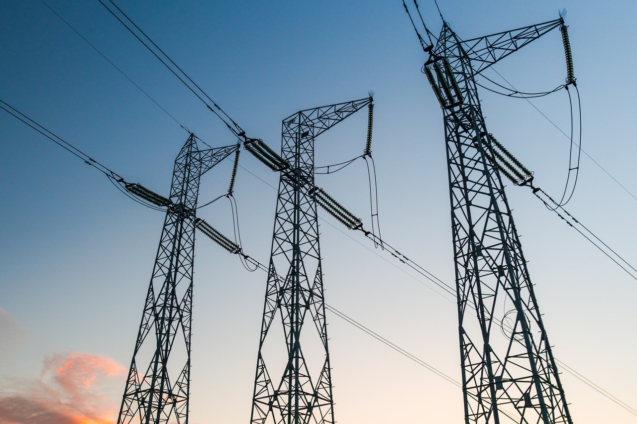The consistent rise in the country's energy sector debt has become a topical issue.
The projection is that the debt could surge to ₵7 billion by the close of the year.
As part of efforts to cut down the debt, government has terminated and renegotiated 'take or pay' contracts with some Independent Power Producers (IPPs).
Discussing the issue critically, energy analysts and relevant stakeholders in the sector who featured on JoyNews Newsfile on Saturday, highlighted some reasons why Ghana's energy sector debt is still on the rise.
Executive Director of the Institute for Energy Policies and Research (INSTEPR), Kwadwo Poku, speaking with host, Samson Lardy Anyenini, blamed the depreciation of the Ghana cedis for the rise in the sector's debt.
"Most of these debts are in dollars. So year-on-year, it is not that debt is accumulated but because the cedi to the dollar depreciates, the debt itself gets bigger. Then you have interest on these debts. The FX translation is a very big factor on the indebtedness."
He also blamed State Owned Enterprises for the consistent challenge. Mr. Poku explained that government is one of the biggest consumers in the sector, yet fails to pay for the energy it uses.
According to him, when the PDS agreement was to be signed, the government went to Parliament and ring-fenced certain sectors and certain Ministries that were not expected to use prepaid meters.
That included the Education, Health, Finance and Interior Ministries.
"For Interior, it includes all the barracks, police, military and for Education, it includes schools. For Health, it includes all the hospitals. These institutions don't pay their electricity bill. Government becomes the highest debtor. So the debt keeps occurring."
"Government needs to sit up, because he is the number one problem or cause of the problem," he stressed.
According to Co-founder & Executive Partner of Arthur Energy Advisors (AEA), Harriette Amissah-Arthur, theft has worsen the country's energy debt.
"There is excessive losses through theft and technical losses. If you compare how much we lose through theft and on a decision to procure capacity we do not need, if we rectify and take the right decision, it will then take away 2 billion and be left with 7 billion and put us in a better place to move forward."
The technical loss is basically dissipation of energy due to old machinery and just loss on the cables, Mr Poku explained.
To ensure the huge debt is cut down, Mr Poku has suggested that all Ministries, Departments and Agencies, barracks, schools and hospitals should be put on prepaid metres.
He argued that "these are money-making institutions, why can't they pay their bills?"
Latest Stories
-
Which will you vote for in 2024 Election: Honesty, Character, or Campaign Promises?
3 hours -
The ball is in Iran’s court after US pressure pays off
3 hours -
‘Japa’ sweeps Nigeria’s hospitals
4 hours -
Obuasi: Catholic Voices GH choral peace concert unites NPP, NDC
4 hours -
Lordina Supports NDC campaign in Ketu North with donation of medical equipment to Afife Health Centre
4 hours -
MTN Foundation delivers crucial technology tools to Eastern Regional Hospital
4 hours -
Galien Forum Africa: Enhaning African women’s role in climate and environmental crises
10 hours -
7th Galien Africa Forum ends with emphasis on health, innovation, and climate action in Africa
10 hours -
Ruthless Barcelona thrash Real Madrid to go 6 points clear
10 hours -
National Farmers’ Day scheduled for November 8
11 hours -
Samson’s Take: Why over 75% vote but only 5% join protests
12 hours -
Krachi East Chiefs applaud Bawumia for campaigning on issues with evidence
13 hours -
National Security Ministry dismisses Reuters’ claims that militants are using Ghana as logistical base
13 hours -
BOST and its CEO win big at 8th Ghana Energy Awards
14 hours -
Accused person in protest over alleged $3m BOST scandal discharged
14 hours

